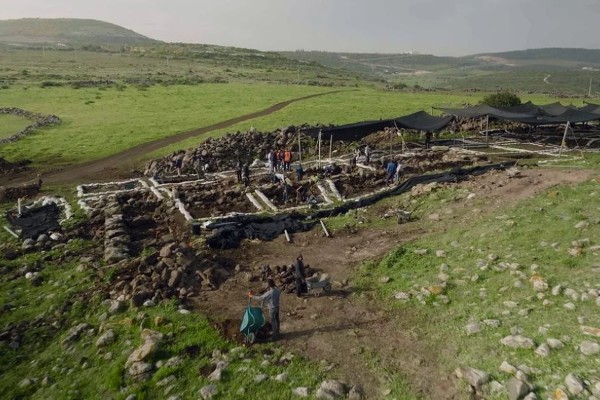Coins retrieved by the Israel Antiquities Authority date the farmstead to the second half of the second century BCE.
By United With Israel staff
A well-preserved 2,100-year-old, Hellenistic Hasmonean period agricultural farmstead, containing finds that may have been abandoned in haste, was uncovered at Horbat Assad next to Nahal Arbel in eastern Galilee.
Excavations carried out by the Israel Antiquities Authority prior to a Mekorot Company project to transfer desalinated water to the Kinneret, uncovered tens of loom weights used for weaving garments, large ceramic storage vessels, and iron agricultural implements, including various picks and scythes.
Coins retrieved by the Israel Antiquities Authority date the farmstead to the second half of the second century BCE.
“We were very lucky to discover a time-capsule, frozen in time, in which the finds remained where they were left by the occupants of the site,” said the IAA’s Dr. Amani Abu-Hamid, director of the excavation.
“It seems that they left in haste in face of an impending danger, possibly the threat of a military attack. The weaving loom weights were still on the shelf, the storage jars were intact,” he said. “More research is required to determine the identity of the inhabitants of the site.”
In addition, the foundations of buildings, pottery vessels and other finds dating to the Iron Age, the 10-9th centuries BCE, were uncovered.
The excavation was financed with the assistance of Mekorot to promote its 910 million shekel Northern Carrier project.
Eli Eskosido, General-Director of the Israel Antiquities Authority said the IAA and Mekorot are cooperating to preserve the farmstead, at the site itself or in the immediate vicinity.”
